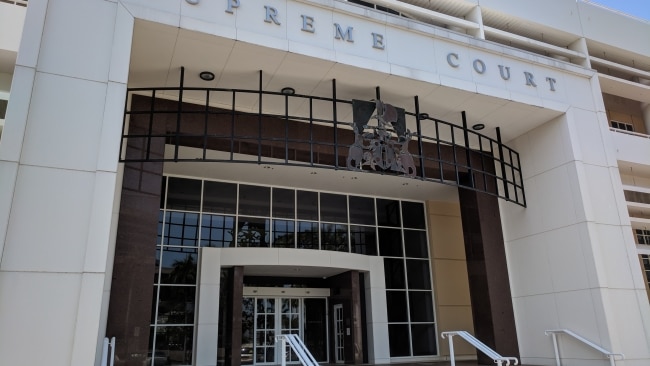Colleen Gwynne, the Northern Territory Children’s Commissioner, is suing for damages after what she calls a “misconceived” attempt to indict her for abuse of authority led to police tapping her phone and wiretapping her office, among other actions.
It was alleged that Ms. Gwynne attempted to appoint her friend Laura Dewson as the assistant children’s commissioner, prompting a three-year police inquiry and criminal trial.
When the prosecution decided to bring no witnesses and the jury was asked to find Ms. Gwynne not guilty, the case came to an abrupt conclusion in the NT Supreme Court last month. Justice John Burns had previously determined that the Crown could not establish that Ms. Gwynne’s actions were criminal rather than simply improper.
Sean Bowden, Ms. Gwynne’s attorney, stated in a letter to Chief Minister Natasha Fyles that the Children’s Commissioner is requesting “proper restitution and recompense for the pre-emptive and misconceived administrative and criminal processes to which she was subjected which has had a negative impact on every aspect of her life.”
In the letter, dated April 13, it is stated that “the administrative action taken at various levels of government, the manner in which decisions were made contrary to her interests, and the manner of the Office of the Commissioner for Public Employment and police investigation (including the bugging of her office and phones) have had a significant permanent effect on her.”
“She seeks to return as nearly as possible to the circumstances she had before being charged.”
As one of only two qualified candidates, Ms. Dewson was chosen by Ms. Gwynne to serve as acting commissioner.
The judges chose Claire Febey, an applicant from another state.
Ms. Gwynne attempted to hire Ms. Dewson, but only after consulting Brian Mappas, the Department of Attorney-General and Justice’s HR director, who in turn spoke with Solicitor General Simon Weise.
A representative for the Department of Attorney-General and Justice acknowledged that “advice was sought from the Solicitor for the Northern Territory, but we are unable to comment on the matter due to the confidentiality and privilege of this information.”
Nicole Hucks, who the independent panel had determined was unqualified for the job, called an OCPE employee who had previously worked for the Office of the Children’s Commissioner on November 21, 2018, which prompted the police to launch their investigation.
Since being accused on July 16, 2020, Ms. Gwynne has been on a paid leave of absence. The position of Acting Children’s Commissioner has now been given to Ms. Hucks.
Mr. Bowden reports that “Ms. Hucks complained that she didn’t get the job.”
“This phone call, which was not officially a grievance because Ms. Hucks was unqualified for the job, set off a chain of events that included an ineffective police investigation and a subsequent criminal prosecution that was fatally flawed from the start,” the report states.
According to Mr. Bowden’s letter, the complaint was forwarded in just eight days from the OCPE to the Public Interest Disclosure Commissioner and then to the police. Throughout this time, Ms. Gwynne was never given the chance to comment on the allegation.
The Police Special References Unit started looking into Ms. Gwynne on November 29, 2018, one day before the newly constituted Independent Commission Against Corruption in the Northern Territory went into operation.
“The immediate referral to the Police Commissioner avoided the impending institution of the ICAC,” Mr. Bowden argues. A complete statutory investigation would have been launched and Ms. Gwynne would have had a chance to present her case if the matter had been referred to ICAC.
“On November 30, the Public Interest Disclosure Commissioner (PID) ceased to exist, and the ICAC assumed its responsibilities.”
According to Mr. Bowden, there is a “serious question” about the police’s use of bugging tools and optical warrants to eavesdrop on Ms. Gwynne’s phone calls and office visits as the Commander of Ethical and Professional Standards. Ms. Gwynne is a former police officer.
The jury was informed during opening arguments in Ms. Gwynne’s Supreme Court trial that Ms. Gwynne had racially disparaged Ms. Hucks by calling her a “fat g*n” in a chat with Ms. Dewson after learning that Ms. Hucks had filed the complaint.
After Justice Burns’ decision, the prosecution abandoned their case five days later without any additional evidence being heard.
The senior officer’s remark was refuted by the police.
A police spokesman added, “The investigation moved forward in accordance with NTPF investigative procedures.”
“The Director of Public Prosecutions reviewed the matter prior to the Notice to Appear; sufficient evidence was available to support the charge and this matter proceeded.”
Police also justified their choice to bug Ms. Gwynne’s office and phone in addition to gaining access to her bank records.
The statement said, “NT Police officers use modern investigative procedures when examining major criminal situations.
“The use of electronic surveillance and telecommunications interception is subject to strong legal restrictions, necessitates a court application, and is strictly supervised by the Ombudsman.
Similar to bank records, any access to other private records is subject to judicial approval.
Ms. Gwynne wants the Northern Territory government to hire an impartial conciliator and pay for them to settle her conflict.
“The criminal investigation shouldn’t have even begun. According to Mr. Bowden’s letter, Ms. Gwynne experienced nearly three years of suffering before the final capitulation.
Ms. Fyles attested that the Government had really obtained Mr. Bowden’s letter.
Ms. Gwynne is taking a leave of absence to think about her future move. Ms. Nicole Hucks will continue to serve as the Acting Children’s Commissioner during this period, the spokesperson stated.





